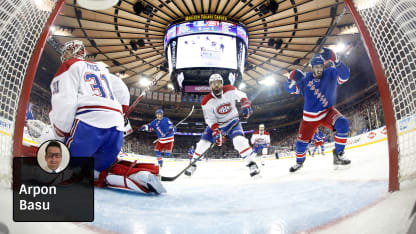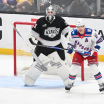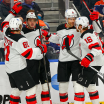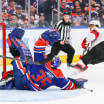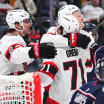"I think we had offense. I think we lacked finish," Montreal coach Claude Julien said. "We had lots of scoring chances, lots of Grade A chances, but we didn't get them through the goaltender."
Julien has been coach of the Canadiens since Feb. 14, but his predecessors have used that exact same reasoning to explain prior playoff exits for years.
The Canadiens' best finisher, captain Max Pacioretty, did not score a goal in the series despite putting 28 shots on goal, more than any other player on Montreal or New York. His 35 goals led the Canadiens in the regular season, but as soon as he went four games without scoring in the series, the pressure on him started to mount.
He has been widely criticized in Montreal for his lack of production ever since then, and it surely won't stop now.
Why? Because he didn't score, but also because the Canadiens need him to score for them to have any chance at success.
"The chances were there," Pacioretty said. "I don't keep track of numbers or anything, but the chances were there. Their goaltender played great. Really strong defensive team.
"I know where everyone's going with this. My job is to bury those chances. I take full responsibility for not scoring a goal in this series. But the chances were there."
It is fair for Pacioretty to take some criticism for not producing in the playoffs because that's the nature of the playoffs. What probably isn't fair is that his production is such a critical aspect of the Canadiens attack.
